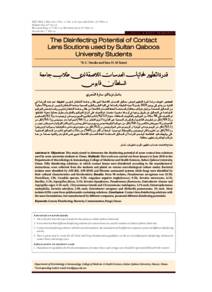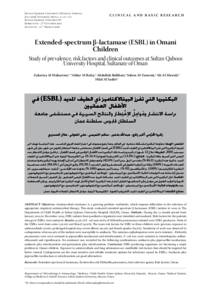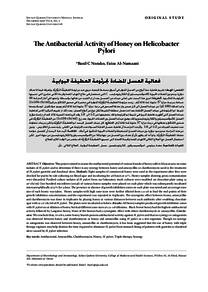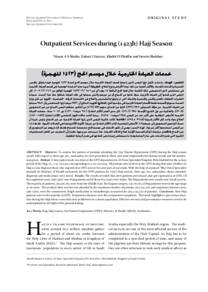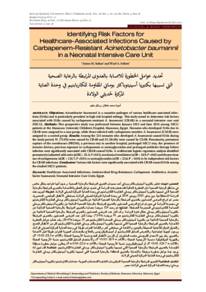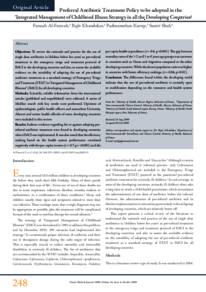Document
Antimicrobial potential of honey on some microbial isolates
Contributors
Hamdi, Jamal., Author
Other titles
صلاحية العسل آمضاد حيوي ضد بعض الجراثيم
Publisher
College of Medicine, Sultan Qaboos University.
Gregorian
2000-04
Language
English
Subject
English abstract
Objective: To assess the antimicrobial potential of honey against certain microbial isolates. Methods: Samples of commercial honeys sold in Makkah area of Saudi Arabia were checked for their antimicrobial activities using standard organisms, Staphylococcus aureus, Escherichia coli, and Pseudomonas aeruginosa. The minimal inhibitory concentration end points of six honey samples found to possess antimicrobial activities were used to determine the sensitivity patterns of some isolates from the laboratory. The temperature stabilities of the honey samples were also determined. Results: The six honey samples had differing levels of antimicrobial activities with the standard organisms and with the laboratory isolates. Black Forest honey showed the highest activity followed respectively by Turkish, Orange Flower, Forest Honey and Summer Flower. The antimicrobial activities of the samples were stable after storing at 2–8° C for six months and after boiling for 15 minutes. Conclusion: The study shows that honey, like antibiotics, has certain organisms sensitive to it while others are resistant, and the sensitivity varies depending on the source of the honey.
Sponsorship
SQU
Member of
Resource URL
Arabic abstract
الهدف: تقييم قدرة العسل على مقاومة الميكروبات لبعض العزلات الميكروبية. الطريقة: تم فحص عينات من العسل التجاري المباع في منطقة مكة المكرمة بالمملكة العربية السعودية لمعرفة أنشطتها المضادة للميكروبات باستخدام الكائنات الحية القياسية ، Staphylococcus aureus ، Escherichia coli ، و Pseudomonas aeruginosa. تم استخدام النقاط النهائية للتركيز المثبط الأدنى لست عينات عسل تحتوي على أنشطة مضادة للميكروبات لتحديد أنماط الحساسية لبعض العزلات من المختبر. كما تم تحديد ثبات درجة حرارة عينات العسل. النتائج: أظهرت عينات العسل الست مستويات مختلفة من الأنشطة المضادة للميكروبات مع الكائنات الحية المعيارية ومع العزلات المعملية. أظهر عسل الغابة السوداء أعلى نشاط يليه عسل الغابة السوداء وعسل زهرة البرتقال وعسل الغابة وزهرة الصيف على التوالي. كانت الأنشطة المضادة للميكروبات للعينات مستقرة بعد التخزين في درجة حرارة 2-8 درجة مئوية لمدة ستة أشهر وبعد الغليان لمدة 15 دقيقة. الخلاصة: أظهرت الدراسة أن العسل مثل المضادات الحيوية له كائنات معينة حساسة له بينما البعض الآخر مقاوم ، وتتفاوت الحساسية حسب مصدر العسل.
Category
Journal articles


